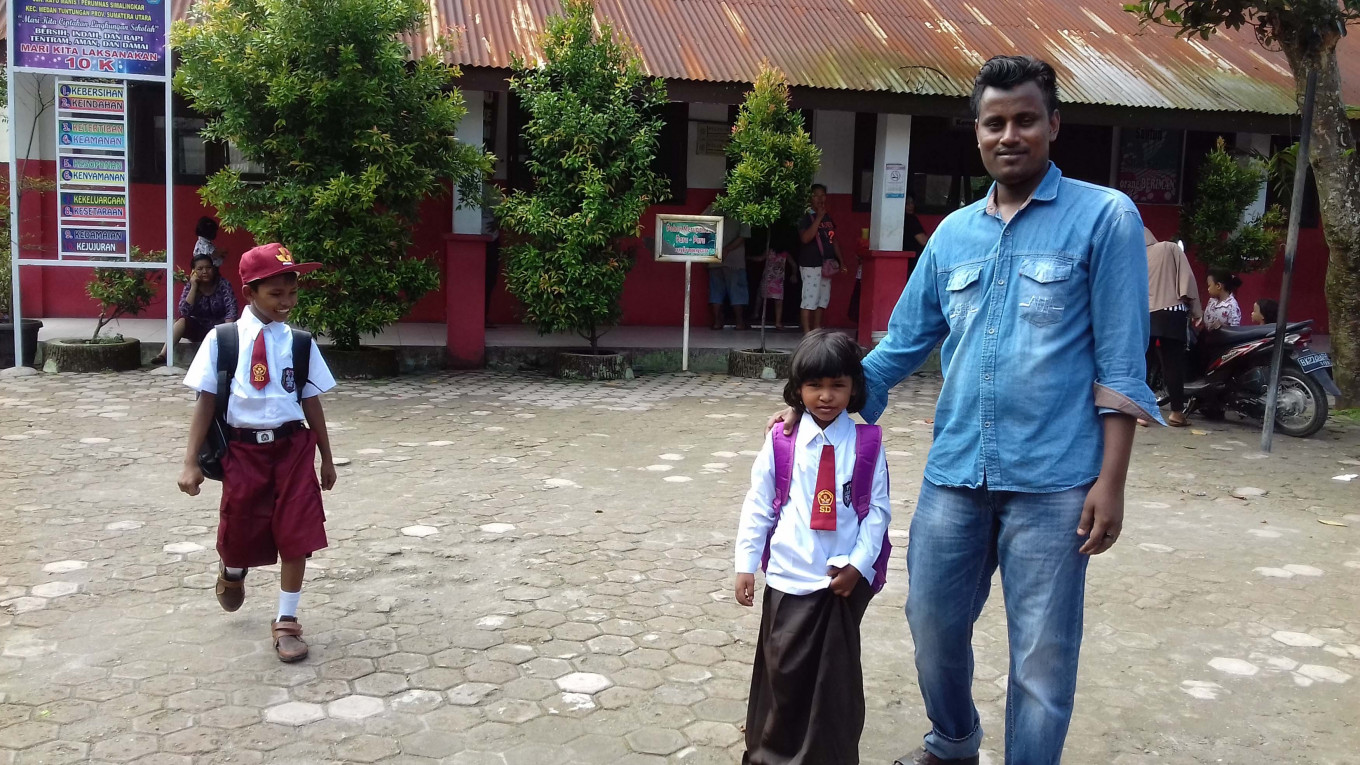Popular Reads
Top Results
Can't find what you're looking for?
View all search resultsPopular Reads
Top Results
Can't find what you're looking for?
View all search resultsASEAN takes step forward for child refugees
Adopted on Nov. 2 at the 35th ASEAN Summit in Bangkok, the ASEAN Declaration on the Rights of Children in the Context of Migration highlights the increased commitment of ASEAN member states on migration issues that affect the region, starting with the less controversial subject for the organization: children.
Change text size
Gift Premium Articles
to Anyone
 Allowing refugee children to go to school will reduce their burdens. For the children themselves, doing so can at least help them forget their past by giving them a taste of the normal childhood of engaging in teaching and learning activities and building friendships with local children. (JP/Apriadi Gunawan)
Allowing refugee children to go to school will reduce their burdens. For the children themselves, doing so can at least help them forget their past by giving them a taste of the normal childhood of engaging in teaching and learning activities and building friendships with local children. (JP/Apriadi Gunawan)
A
dopted on Nov. 2 at the 35th ASEAN Summit in Bangkok, the ASEAN Declaration on the Rights of Children in the Context of Migration highlights the increased commitment of ASEAN member states on migration issues that affect the region, starting with the less controversial subject for the organization: children. It was adopted in conjunction with 30 years of the 1989 United Nations Convention on the Rights of the Child
The preamble notes with “deep concern the millions of children worldwide who are displaced from their homes, including by conflict, poverty, disaster, climate change and environmental degradation, experience exploitation, deprivation and discrimination on their journeys within and across borders”.
The term “migrant” is preferable to “refugee” because first, it covers a larger scope than “refugee” as defined under international law. Second, refugees are a sensitive issue in ASEAN because of its link in recent years to the Rohingya, the persecuted minority ethnic group in Myanmar.
Although all ASEAN states have signed the UN High Commissioner for Refugees (UNHCR) Global Compact on Refugees, only Cambodia and the Philippines are parties to the UNHCR’s 1951 Refugee Convention.
The region’s general view is that the convention provides a “Western” definition of refugees that does not fit the Southeast Asian experience where many have migrated due to poverty, inequality and natural disasters, apart from escaping violence. This argument dates back to the 1970s, when a few regional nations that were still concentrating on developing their fledgling sovereign states — including Indonesia — generously provided temporary safe havens to refugees fleeing the Indochina War.
Despite the historical, legal and textual debates, child refugees are the most vulnerable beings, even more so when they are unaccompanied. As a child, they cannot fight for their rights on their own, as they are still dependent on adults. The duty-bearing role of states is desperately needed to provide access to sustainable livelihood in advance.
If the declaration is turned into action, it would signal the burden-sharing obligations of ASEAN member states to help these refugee children that reside within their territorial jurisdictions, irrespective of the children’s immigration status.

















